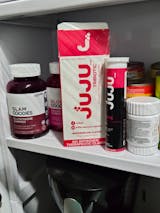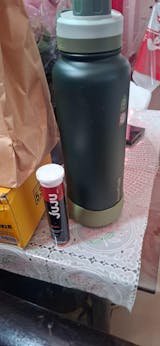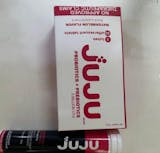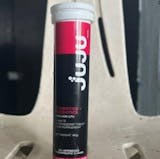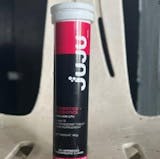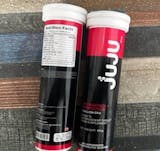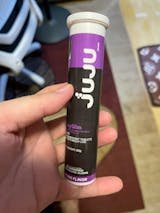People are flocking to collagen supplements for a reason: healthier, younger-looking skin. But along with the hype comes a question: can collagen cause pimples? Collagen peptides are all the rage for promoting that youthful bounce, but do they come with a breakout-causing side effect?
Collagen itself is a protein that provides structure and support to the skin. However, some people worry that consuming or using collagen products might lead to breakouts. Let’s delve deeper into this concern to understand if there’s any truth to the connection between collagen and acne.
IN THIS ARTICLE
16. Conclusion
Understanding Collagen and Its Role in Skin Health
In the skin, collagen provides strength and elasticity. As people get older, their collagen levels fall, and collagen fibers become thinner and weaker. Some experts believe this may contribute to skin aging. For this reason, many skin care products contain forms of collagen.
Collagen is the most abundant protein in the human body, acting as the glue that holds everything together. It’s a major component of our connective tissue, providing structure and support to our skin, bones, muscles, and tendons. In the context of skin health, collagen plays a crucial role. It gives skin its plumpness and elasticity, keeping it firm and youthful. As we age, collagen production naturally declines. This decrease contributes to wrinkles, sagging, and a loss of that youthful glow.
That’s where collagen products come in. The idea is that by consuming collagen supplements or using topical creams containing collagen, we can replenish our reserves and potentially reverse some of the visible signs of aging. While the benefits of collagen for overall health are still being researched, its role in promoting healthy, youthful skin is a major reason for its growing popularity.
The Connection Between Collagen Supplements and Skin Acne
There isn’t strong evidence that collagen causes acne, but some people may get acne because of things like allergies, taking low-quality supplements, or having digestive problems.
The concern that collagen supplements might cause acne is a valid one, but the answer isn’t a simple yes or no. Here’s why:
Collagen itself, the protein our bodies use for structure, isn’t inherently pore-clogging. So, it shouldn’t directly lead to breakouts. However, there are a few factors to consider:
- Ingredient Issues: Some collagen supplements might contain additional ingredients like fillers, sweeteners, or artificial flavors. These additives, if not chosen carefully, could potentially clog pores and trigger acne, especially for those with acne-prone skin.
- Indirect Effects: Digestive issues caused by certain collagen supplements might indirectly contribute to breakouts. This is because gut health is linked to skin health, and disruptions in digestion can sometimes manifest as acne.
- Individual Sensitivities: In rare cases, some individuals might have a sensitivity to collagen itself or other components in the supplement. This sensitivity could manifest as breakouts.
Overall, the link between collagen and acne isn’t clear-cut. While there’s no scientific evidence that collagen directly causes pimples, other ingredients or individual sensitivities might play a role.
TYPES OF COLLAGEN SUPPLEMENTS AND THEIR INGREDIENTS
One of the most popular uses of collagen supplements is to support skin health. Research suggests that taking collagen supplements may improve certain aspects of skin health and appearance.
Collagen Powders:
These are a popular choice for adding collagen to your diet. They can be flavorless or flavored and dissolve easily in beverages or smoothies. The type of collagen can vary, but common ones include hydrolyzed collagen peptides (easily absorbed by the body) from bovine or marine sources.
Collagen Capsules and Tablets:
These offer a convenient way to take your daily dose of collagen. They typically contain hydrolyzed collagen peptides from various sources like cows, pigs, or fish. Some products may contain additional ingredients like vitamin C, which can aid collagen absorption.
Collagen Beauty Drinks:
These pre-portioned drinks come in various flavors and often contain collagen peptides alongside other beauty-boosting ingredients like hyaluronic acid or antioxidants.
Topical Collagen Creams:
These are applied directly to the skin and claim to deliver collagen to improve elasticity and reduce wrinkles. While the effectiveness of topical collagen is debated, some formulas may contain ingredients that clog pores and worsen acne, especially for those with sensitive skin.
Food Sources of Collagen:
While supplements are popular, incorporating collagen-rich foods into your diet can be a natural way to boost your body’s production. Bone broth, fish with skin, egg whites, and citrus fruits are all good sources of collagen precursors, the building blocks your body uses to create collagen.
Collagen supplements have a good safety profile and are not associated with adverse side effects.
However, manufacturers often combine collagen with other ingredients in supplements. Certain ingredients could pose health risks, such as herbs and high levels of vitamins in supplements formulated to support the health of the skin, nails, and hair.
How the Body Processes Collagen Supplements?
Consuming collagen supplements doesn’t directly add ready-made collagen to your skin. Instead, the body takes a different approach. Once ingested, collagen supplements, typically in the form of hydrolyzed collagen peptides, travel through the digestive system. Here, they’re broken down into individual amino acids, the building blocks of protein. These amino acids then enter the bloodstream and become available for various bodily functions.
While some of these amino acids might be used for collagen synthesis, they can also be used to build other proteins the body needs. The key benefit of collagen supplementation lies in potentially promoting overall collagen production. By providing the body with a readily available pool of amino acids specifically linked to collagen structure, collagen supplementation might stimulate the fibroblasts, the cells responsible for collagen synthesis, to produce more collagen. This, in turn, could contribute to improved skin health and elasticity.
The efficiency of how well the body absorbs collagen peptides from supplements varies depending on the source and processing methods. Generally, marine collagen peptides are thought to have a higher absorption rate compared to bovine collagen. Just like with any supplement, the effects of collagen can vary from person to person. Factors like age, overall health, and genetics can influence how much collagen your body uses from supplementation.
Research on the long-term effects of collagen supplementation is ongoing. While studies suggest potential benefits for skin health and joint pain, more research is needed to fully understand the long-term impact on the body. Collagen supplements are generally considered safe for most healthy adults. However, it’s always recommended to consult a healthcare professional before starting any new supplement, especially if you have any underlying health conditions or are taking medications.
Common Myths About Collagen and Acne
- Myth: Collagen Directly Causes Acne: Collagen itself, the protein our body uses for structure, doesn’t directly clog pores or trigger breakouts. So, it shouldn’t worsen acne.
- Myth: All Collagen Supplements Cause Acne: The culprit might be elsewhere. Some collagen supplements contain additional ingredients like fillers, sweeteners, or artificial flavors that could potentially clog pores and lead to breakouts, especially for those with acne-prone skin.
- Myth: Collagen Makes Existing Acne Worse: There’s no scientific evidence to suggest that collagen supplements worsen existing acne. However, individual sensitivities or digestive issues caused by certain supplements might indirectly contribute to breakouts.
- Myth: Topical Collagen Creams Clear Acne: The effectiveness of topical collagen for acne specifically is debatable. While some formulas might claim to improve skin texture, they could also contain pore-clogging ingredients that worsen acne, particularly for those with sensitive skin.
- Myth: You Can’t Have Clear Skin While Taking Collagen: While the effect of collagen peptides on acne needs further research, it doesn’t automatically negate the potential benefits of collagen for overall skin health. Focusing on choosing high-quality supplements with minimal added ingredients and monitoring your skin’s reaction can help you determine if collagen is right for you.
Investigating the Causes of Pimples and Acne
While collagen supplements themselves might not be the direct culprit, understanding what causes pimples and acne can help you manage your breakouts. Acne occurs when several factors combine to clog pores and trigger inflammation. Here’s a breakdown of the key contributors:
- Excess Oil Production: Sebum, an oily substance naturally produced by the skin to keep it hydrated, can become overproduced due to hormonal changes during puberty or adulthood. This excess oil can mix with dead skin cells and clog pores, creating an environment for bacteria to thrive.
- Dead Skin Cell Buildup: Normally, skin cells shed and are replaced by new ones. However, when this process slows down, dead skin cells can accumulate on the surface and clog pores, contributing to acne formation.
- Bacteria: Propionibacterium acnes (P. acnes), a type of bacteria naturally present on the skin, can feed on sebum and contribute to inflammation within clogged pores. This inflammation leads to the development of pimples.
- Hormonal Changes: Fluctuations in hormone levels, especially during puberty, pregnancy, or menstruation, can trigger an increase in oil production and contribute to hormonal acne.
- Genetics: Acne can also run in families, suggesting a genetic predisposition. If your parents had acne, you might be more likely to develop it as well.
Understanding these acne causes is crucial for developing an effective acne treatment plan. Consulting a dermatologist can help you identify your specific triggers and recommend the best course of action, which might include topical medications, oral medications, or lifestyle changes.
Collagen Quality and Its Impact on Skin
Not all collagen supplements are created equal. When it comes to improving skin health, collagen quality plays a significant role. Here’s why:
- Bioavailability: The key to reaping the benefits of collagen supplementation lies in how well your body absorbs it. High-quality collagen supplements are typically hydrolyzed into smaller peptides, making them easier for your body to absorb and utilize.
- Source: The source of the collagen can also impact its effectiveness. Some sources, like marine collagen, might have a higher bioavailability compared to others.
- Purity: Choosing collagen supplements with minimal added ingredients or fillers is important. These additives can potentially hinder absorption and negate the benefits of collagen for skin health.
By focusing on high-quality collagen, you can potentially maximize the positive impact on your skin. Improved collagen levels can contribute to increased skin elasticity, improved skin hydration, and a reduction in the appearance of wrinkles and fine lines. This translates to a smoother, firmer, and more youthful overall skin texture.
Dietary Collagen vs. Supplemental Collagen
There are two main ways to increase your collagen intake: through your diet and by taking supplements. Each approach has its own set of advantages and disadvantages:
Dietary Collagen:
- Benefits: Eating collagen-rich foods like bone broth, fish with skin, egg whites, and citrus fruits provides your body with the natural building blocks it needs for collagen production. This can be a more sustainable and natural approach to boosting collagen levels.
- Drawbacks: Obtaining significant amounts of collagen solely through diet can be challenging. You would need to consume large quantities of these foods regularly to see a noticeable effect. Additionally, the body不一定 (bù nhấtìng) breaks down dietary collagen specifically for collagen production – these amino acids can be used for other bodily functions as well.
Supplemental Collagen:
- Benefits: Collagen supplements, typically containing hydrolyzed collagen peptides, offer a concentrated and convenient way to increase your collagen intake. This can be especially helpful if you struggle to incorporate sufficient collagen-rich foods into your diet.
- Drawbacks: Supplements might not be as readily absorbed by the body compared to dietary collagen. Additionally, some supplements may contain fillers, additives, or artificial flavors that could potentially trigger other health concerns, particularly for those with sensitive skin or digestive issues.
Ultimately, the best approach for you depends on your individual preferences and dietary habits. If you’re looking for a natural and sustainable method, focusing on a collagen-rich diet is a good option. However, if convenience and a more concentrated dose are priorities, high-quality collagen supplements might be a suitable choice. Consulting a dermatologist or nutritionist can help you determine the best course of action for your specific needs and health goals.
Can Collagen Supplements Improve Skin Without Causing Acne?
The effect of collagen supplements on acne is a bit of a two-sided coin. While collagen itself is a protein that supports healthy skin structure, there’s no definitive evidence that collagen supplements directly improve acne.
On the positive side, collagen does play a role in improving skin elasticity and hydration. This can indirectly contribute to healthier-looking skin, potentially reducing the appearance of acne scars. Additionally, some studies suggest collagen peptides might have anti-inflammatory properties, which could be beneficial for those with acne caused by inflammation.
However, there is some concern that collagen supplements might lead to acne flare ups in some individuals. This is mainly anecdotal evidence, and more research is needed. It’s also important to consider that some collagen supplements may contain ingredients that can clog pores and contribute to breakouts.
The impact of collagen on acne seems to vary. If you’re considering trying collagen supplements for improving skin conditions, it’s wise to talk to a dermatologist first. They can help you assess your individual risk of acne flare-ups and recommend the best course of action for your specific needs.
Factors Contributing to Acne Flare-Ups
Diet
A poor diet high in sugary and processed foods can contribute to acne flare-ups. These foods can cause fluctuations in blood sugar levels, which can trigger acne breakouts.
Stress
Stress hormones can increase oil production in the skin, leading to clogged pores and acne breakouts.
Hormonal Changes
Fluctuations in hormone levels, such as during puberty, menstruation, or pregnancy, can trigger acne breakouts by increasing oil production and promoting skin congestion.
Dead Skin Cells
A buildup of dead skin cells on the surface of the skin can clog pores and create an environment for bacteria to thrive, leading to acne breakouts.
Oil Production
Individuals with naturally oily skin are more prone to clogged pores and acne breakouts.
How to Safely Incorporate Collagen Into Your Beauty Routine?
If you have acne-prone skin and are interested in trying collagen for its potential benefits, here are some tips for safe incorporation into your beauty routine:
- Focus on a gentle skincare routine: Collagen supplements should complement, not replace, a well-established acne management plan. Continue using gentle facial cleansers, acne-fighting products recommended by your dermatologist, and a moisturizer suitable for your skin type.
- Start slow and monitor: Introduce collagen supplements gradually, starting with a low dose and monitoring your skin for any signs of irritation or breakouts.
- Choose high-quality supplements: Look for collagen supplements with a clean ingredient list and avoid those with added sugars, artificial flavors, or fillers that could potentially clog pores.
- Consider alternative delivery methods: If you experience breakouts with oral supplements, explore topical collagen creams or serums. However, remember that topical collagen has limited research on its effectiveness for promoting deeper skin collagen production.
- Consult a dermatologist: Before making significant changes to your routine, especially if you have persistent acne concerns, book an appointment with a dermatologist. They can assess your individual needs and recommend a personalized skincare plan that incorporates collagen safely and effectively.
Selecting the Right Collagen Supplement for Acne-Prone Skin
When selecting a collagen supplement for acne-prone skin, there are some key factors to consider:
- Source: Marine collagen is generally considered a better option for acne-prone individuals compared to bovine or porcine collagen. Marine collagen has a smaller molecular size, making it easier to absorb and potentially less likely to trigger breakouts.
- Ingredients: Opt for collagen supplements with a clean ingredient list. Avoid those containing added sugars, artificial flavors, fillers, or other ingredients known to clog pores and exacerbate skin issues.
- Form: Powders are a popular option, but capsules might be preferable if you’re concerned about taste. Consider trying a liquid collagen for easier absorption, but be sure it’s free of added sugars or artificial sweeteners.
- Focus: While collagen promotes healthy skin by improving elasticity and hydration, some supplements may be formulated with additional ingredients for specific concerns. For acne-prone skin, look for options that include ingredients with anti-inflammatory properties or those that support wound healing, potentially aiding in reducing the appearance of acne scars.
- Dosage: Start with a low dosage and gradually increase as tolerated. This allows your body to adjust and helps you identify if the supplement triggers any breakouts.
Remember, collagen supplements are not a magic bullet for acne. However, by choosing the right one and incorporating it into a well-rounded skincare routine, you might experience benefits like improved skin texture, reduced appearance of fine lines, and a more radiant and even skin tone. Consulting a dermatologist can further guide you towards a personalized approach to achieving healthy, acne-controlled skin.
The Role of Vitamin C and Glutathione in Collagen Absorption
Vitamin C and glutathione play a supporting role in collagen absorption and overall skin health. They work synergistically, meaning their combined effects are greater than the sum of their individual parts.
Vitamin C is a crucial cofactor in the process of promoting collagen production by our fibroblasts, the skin cells responsible for collagen synthesis. It also acts as an antioxidant, neutralizing free radicals that cause skin damage and breakdown of collagen.
Glutathione, another antioxidant, enhances vitamin C’s effectiveness and protects it from degradation. It also plays a role in reducing inflammation and promoting the proper functioning of our gut health, which can indirectly influence collagen absorption. While research is ongoing, some studies suggest that adequate glutathione levels might be linked to improved skin hydration and elasticity.
While collagen itself is the building block for healthy skin, sufficient vitamin C and glutathione levels can optimize the environment for collagen production and function. This translates to potentially smoother, more supple skin with improved elasticity and hydration, potentially reducing the visible signs of aging caused by collagen breakdown.
Addressing Skin Concerns with Juju’s Collagen Products
Struggling with acne and interested in exploring the potential of collagen? JUJU Collagen With Vitamin C Effervescent Tablets might be worth considering. Collagen plays a vital role in supporting healthy skin by providing structural integrity and elasticity as a key component of connective tissues. While collagen itself doesn’t directly combat acne, Juju’s formulations incorporate high-quality collagen peptides to potentially improve overall skin health in ways that can indirectly benefit those with acne concerns.
Juju understands that some individuals with acne-prone skin might be hesitant about collagen peptide supplementation. Their products are designed with this in mind, focusing on clean ingredients and formulations that minimize the risk of clogged pores, a common concern for acne sufferers. By incorporating Juju’s collagen alongside a well-established acne management plan, you might experience benefits like improved skin hydration, reduced appearance of acne scars, and a more radiant complexion. Remember, consulting a dermatologist is always recommended to discuss the effectiveness of collagen peptides for your specific skin concerns and create a personalized approach to achieving clear, healthy skin.
Frequently Asked Questions
Can Collagen Supplements Really Improve Wrinkles And Fine Lines?
While collagen is a key component of youthful skin, research on the effectiveness of oral collagen supplements for reducing wrinkles is mixed. Some studies show promise, particularly for improving skin hydration and elasticity, which can lead to a plumper appearance and potentially lessen the appearance of fine lines. However, more research is needed to definitively determine the wrinkle-fighting abilities of collagen supplements.
Is There A "Best" Type Of Collagen For Skin Health?
There are several types of collagen, but those most commonly used in supplements are types I, II, and III. Type I collagen is the most abundant and is thought to be beneficial for skin health. Marine collagen, derived from fish skin, is a popular choice because it has a smaller molecular size, potentially making it easier for the body to absorb.
How Long Does It Take To See Results From Collagen Supplements?
Collagen turnover in the body is a relatively slow process. So, it can take several weeks, or even months, to see noticeable improvements in skin health from collagen supplementation. Consistency is key!
Are There Any Side Effects To Taking Collagen Supplements?
Collagen supplements are generally well-tolerated, but some people may experience mild side effects like bloating, heartburn, or nausea. It’s important to choose a high-quality collagen supplement and start with a low dose to see how your body reacts. Additionally, if you have any underlying health conditions, consult with your doctor before starting collagen supplementation.
Can I Get Collagen From My Diet Instead Of Taking Supplements?
Yes, you can! Bone broth, certain fish varieties, and egg whites are all natural sources of collagen. However, it can be difficult to get enough collagen through diet alone to significantly impact skin health. Including collagen-rich foods in your diet alongside a balanced skincare routine can be a great way to support your overall skin health.
Conclusion
While there isn’t definitive evidence that collagen supplements directly eliminate acne, they might offer indirect benefits for those with concerns about blemishes.
Collagen itself provides structural support and elasticity to the skin, and some studies suggest it may improve hydration and reduce the appearance of wrinkles. Additionally, collagen peptides might contribute to reducing oxidative stress and inflammation, both of which can worsen acne.
However, some collagen supplements may contain ingredients that clog pores and trigger breakouts, especially for those with acne-prone skin. Careful selection and a focus on clean ingredients are crucial. By incorporating high-quality collagen peptides into a well-rounded skincare routine that addresses acne specifically, you might experience overall skin health improvements.
Consulting a dermatologist can help you navigate your individual needs and determine if collagen supplementation is a good fit for your journey towards clear, healthy skin. So, while the question “Can Collagen Cause Pimples” doesn’t have a simple yes or no answer, with the right approach, collagen can become a valuable asset in your skin health maintenance plan.


